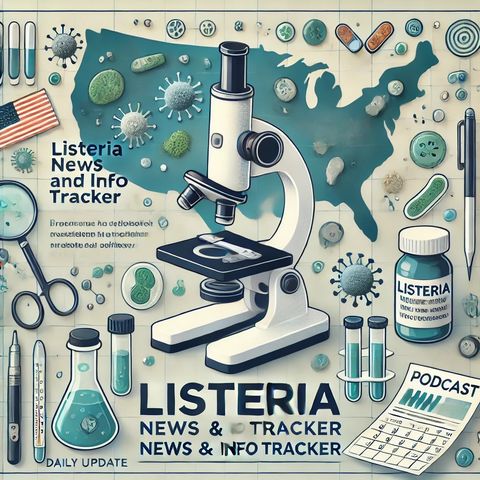Navigating the Infectious Threats: Listeria Outbreak, EEEV, and Mpox Require Heightened Public Health Vigilance

Download and listen anywhere
Download your favorite episodes and enjoy them, wherever you are! Sign up or log in now to access offline listening.
Navigating the Infectious Threats: Listeria Outbreak, EEEV, and Mpox Require Heightened Public Health Vigilance
This is an automatically generated transcript. Please note that complete accuracy is not guaranteed.
Description
In recent weeks, public health officials have been on high alert due to a series of significant infection threats, notably the listeria outbreak linked to Boar's Head products. Listeria, a...
show moreThe listeria outbreak was traced back to Boar's Head products, prompting an immediate recall to prevent further spread. Listeria monocytogenes can thrive at refrigerator temperatures, making it particularly problematic for ready-to-eat foods, which do not require additional cooking that could kill the bacteria. Symptoms of listeriosis include fever, muscle aches, headache, stiff neck, confusion, and convulsions, sometimes preceded by diarrhea or other gastrointestinal symptoms. In pregnant women, listeriosis can lead to miscarriage, stillbirth, premature delivery, or life-threatening infection of the newborn.
Listeriosis presents a significant public health challenge due to its high mortality rate as compared to other foodborne pathogens. The current Boar's Head recall serves as a stark reminder of the importance of stringent food safety practices and proactive measures to detect and eliminate contamination sources in food production and distribution chains.
The Pathogen Pulse's highlights on this infection coincide with attentiveness to other infectious threats such as Eastern Equine Encephalitis Virus (EEEV) and Mpox. Eastern Equine Encephalitis, a rare but severe mosquito-borne virus, can cause inflammation of the brain, leading to sudden onset of headache, high fever, chills, and vomiting. The most severe cases result in encephalitis or meningitis, with about one-third of those affected succumbing to the disease, and many survivors experiencing long-term neurological problems.
Mpox, previously known as Monkeypox, has also drawn significant attention. This viral disease presents symptoms similar to smallpox, although generally less severe. It includes fever, rash, and swollen lymph nodes. Sporadic outbreaks, especially in endemic regions, underscore the need for continuous monitoring and preventive strategies.
The convergence of these infectious threats reiterates the need for vigilance in infection prevention and control. Public health campaigns and food safety regulations play critical roles in managing and mitigating the risks posed by pathogens like listeria, EEEV, and Mpox. Ongoing research, development of rapid diagnostic tools, and public awareness are essential in curtailing the impact of these infectious diseases, ensuring the health and safety of communities worldwide.
Information
| Author | QP-4 |
| Organization | William Corbin |
| Website | - |
| Tags |
Copyright 2024 - Spreaker Inc. an iHeartMedia Company
